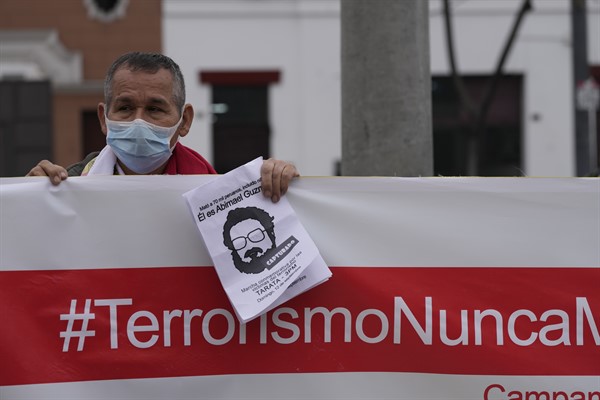LIMA, Peru—Less than a week after Abimael Guzman—the aging founder of the Maoist Shining Path guerilla group that once drenched this Andean nation in blood—died in prison, Peru’s divided Congress passed a law ensuring the cremation of his body.
The rushed piece of legislation, approved last Friday with 70 votes in favor and 32 against, was intended to head off the possibility of Guzman’s tomb becoming a shrine to his fundamentalist ideology. Guzman and his followers believed a proletarian utopia should be built, almost literally, on the bones of the bourgeoisie—a class it defined as anyone who had not signed up to the former provincial philosophy professor’s personality cult.
There had initially been some confusion over whether Guzman’s only known relative, his widow Elena Ipaguirre, was legally entitled to claim his body, given that she, like him, was serving a life sentence for terrorism. But her lawyers were trying.

